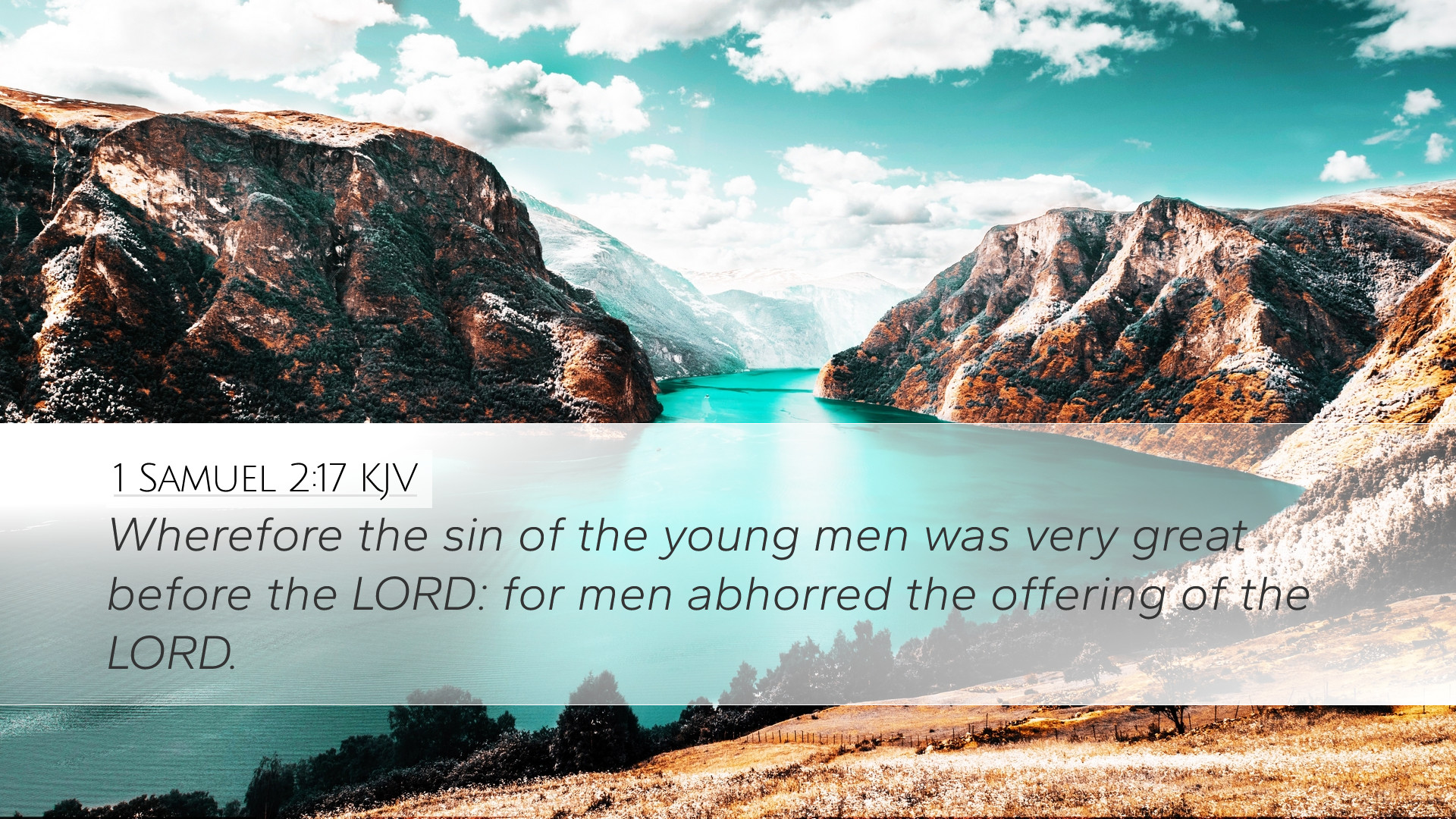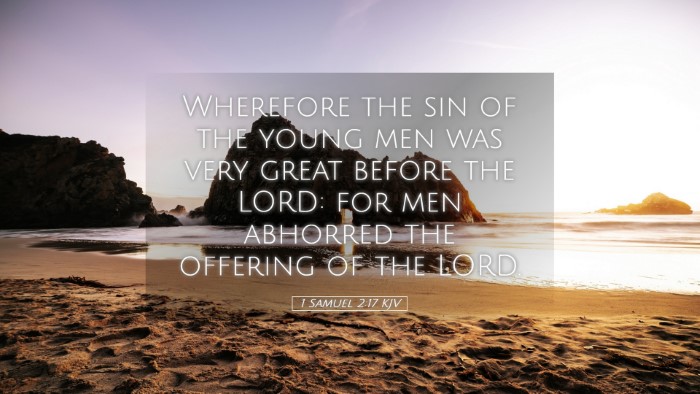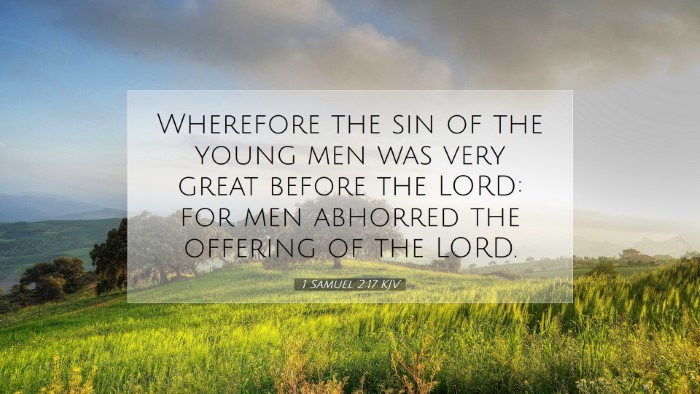Commentary on 1 Samuel 2:17
This verse, embedded within a larger narrative, presents a critical insight into the spiritual degradation of the priesthood in Israel during the time of Eli. The sin of the priests, encapsulated in 1 Samuel 2:17, is emblematic of a broader moral decay affecting both leadership and the people. The commentary will reflect insights gleaned from several public domain commentaries, helping to illuminate the text for pastors, students, theologians, and Bible scholars.
Text of 1 Samuel 2:17:
"Wherefore the sin of the young men was very great before the Lord: for men abhorred the offering of the Lord."
Contextual Background
In analyzing this verse, it is crucial to consider the context provided by the preceding chapters. Eli, the high priest, had two sons, Hophni and Phinehas, who served as priests. The narrative highlights the irreverence and immorality that these young men exhibited in their priestly duties. Their conduct not only disrespected the sacrificial system but also led the people to loathe the offerings that were central to their worship.
Leadership and Accountability
Matthew Henry remarks on the severe implications of this sin, pointing out that the priests were to act as mediators between God and the people but instead became a stumbling block. Their actions represent a failure in spiritual leadership. Such a grave sin before the Lord serves as a warning against leaders who take their positions lightly.
The Nature of Sin and Its Consequences
Albert Barnes elaborates on the meaning of sin in this context, noting that the phrase "very great" underscores the severity of their actions. It signifies not just personal sin but a collective failure that affects the entire nation. The ramifications of their sin extend beyond themselves, as their actions deeply impacted the worship and reverence in Israel. This illustrates a key theological principle: leaders' moral failures can lead to widespread spiritual corruption.
Superficial Worship
Adam Clarke comments on the abhorrence of the offerings, suggesting that the people’s revulsion stemmed from the leaders' corrupt practices. The ritual became a mere formality devoid of genuine reverence. This scenario raises essential questions regarding the integrity of worship and the importance of sincere leadership in guiding the people’s spiritual lives.
Theological Insights
The passage reveals significant theological themes regarding the nature of sacrifice and the seriousness of sin. The disregard for the offerings reflects a deeper issue of heart posture towards God. True worship necessitates both a proper understanding of God’s holiness and an earnest commitment to uphold His commandments.
The Nature of Offerings
In the Levitical system, offerings were designed to be acts of devotion, intended to draw worshippers nearer to God. When those designated to offer these sacrifices fall into sin, it causes a ripple effect throughout the community, leading to a distorted perspective of divine requirements.
God's Holiness vs. Human Flaws
It is crucial to remember Scripture’s declaration of God’s holiness. The irreverence displayed by Hophni and Phinehas is not just a personal failing but a direct affront to God's character and standards. Henry mentions that such conduct invokes divine judgment, emphasizing the sacredness of the priestly office and the gravity of falling short of God's expectations.
Implications for Modern Believers
This verse serves as a timeless reminder for contemporary leaders within the church. The significance of maintaining personal integrity, accountability, and reverence for God remains a critical message for all, particularly for those in positions of spiritual authority.
Case for Genuine Leadership
Pastors and church leaders today are called to cultivate an environment where offerings—whether of time, worship, or resources—are honored and treated with reverence. Clarke suggests that any deviation from this honor can inadvertently lead congregants to view worship as peripheral or even distasteful.
Community and Worship
The communal aspect of worship in Israel illustrates how interconnected the lives of the leaders and the laypersons were. Hence, a failure in spiritual leadership inevitably leads to disarray within the community’s reverence for God. This principle is extensible to the modern church, where the integrity of leadership directly influences congregational devotion.
Conclusion
In conclusion, 1 Samuel 2:17 serves as a powerful admonition regarding the pitfalls of leadership and the dignity of worship. The historical context reveals the profound effects that corrupt leadership can have on a community’s relationship with God. As such, it beckons modern believers to pursue holiness, accountability, and robust teaching, ensuring that the offerings they bring are not just rituals, but genuine expressions of faith.


